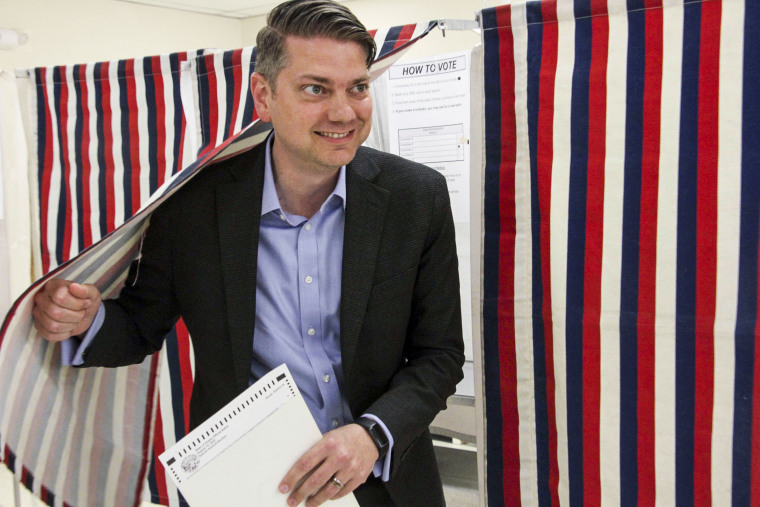Former Alaska Gov. Sarah Palin has clinched one of four spots in November’s ranked-choice general election for the state’s at-large congressional seat, NBC News projects, keeping alive her hopes for a political comeback.
She will be joined on the fall ballot by Republican Nick Begich, the namesake grandson of a former Democratic representative who held the seat, Democrat Mary Sattler Peltola, a former state lawmaker, and Republican Tara Sweeney, a former assistant secretary for Native American affairs in the Interior Department.
In the Senate all-party primary, Sen. Lisa Murkowski and Kelly Tshibaka — Republican rivals locked in one of former President Donald Trump’s grudge matches — will advance to the general election alongside Democrat Patricia Chesbro, NBC News projects. It was too early to call the fourth finisher in that contest, as well.
A separate special election Tuesday to fill the remaining months of the late Rep. Don Young’s term — a race that also features Palin, who has Trump's endorsement — is too early to call. That contest is the state’s first to use ranked-choice voting, and NBC News projects no candidate will receive a majority of the vote in the first round. Results aren’t expected to be fully tabulated until later this month.
Palin, the 2008 Republican nominee for vice president, finished first in a nonpartisan June primary to secure one of the four spots on Tuesday's special election ballot. She faced Begich and Peltola. Al Gross, an independent who finished third in the June primary, later withdrew, leaving three candidates.

In ranked-choice elections, voters identify their first choice on ballots, then rank the other candidates in order of preference. If no candidate receives a majority of first-choice votes on the first count, the election moves to an instant runoff. The candidate with the fewest votes is eliminated, and ballots cast for that candidate are recast for the voter’s second choice. The process repeats until a candidate reaches a majority.
Tuesday's special election will decide who finishes Young's term. Tuesday's primary will determine which four candidates will compete for a full two-year term in the at-large seat that begins next year.
Young, the longest-serving Republican in congressional history, died in March.
Palin has faced criticism for leaving her term as governor early and embracing her political celebrity after the 2008 campaign.
"I get it. Sarah Palin is famous," a small-business owner said in one Begich ad. "But come on? U.S. Congress?"
